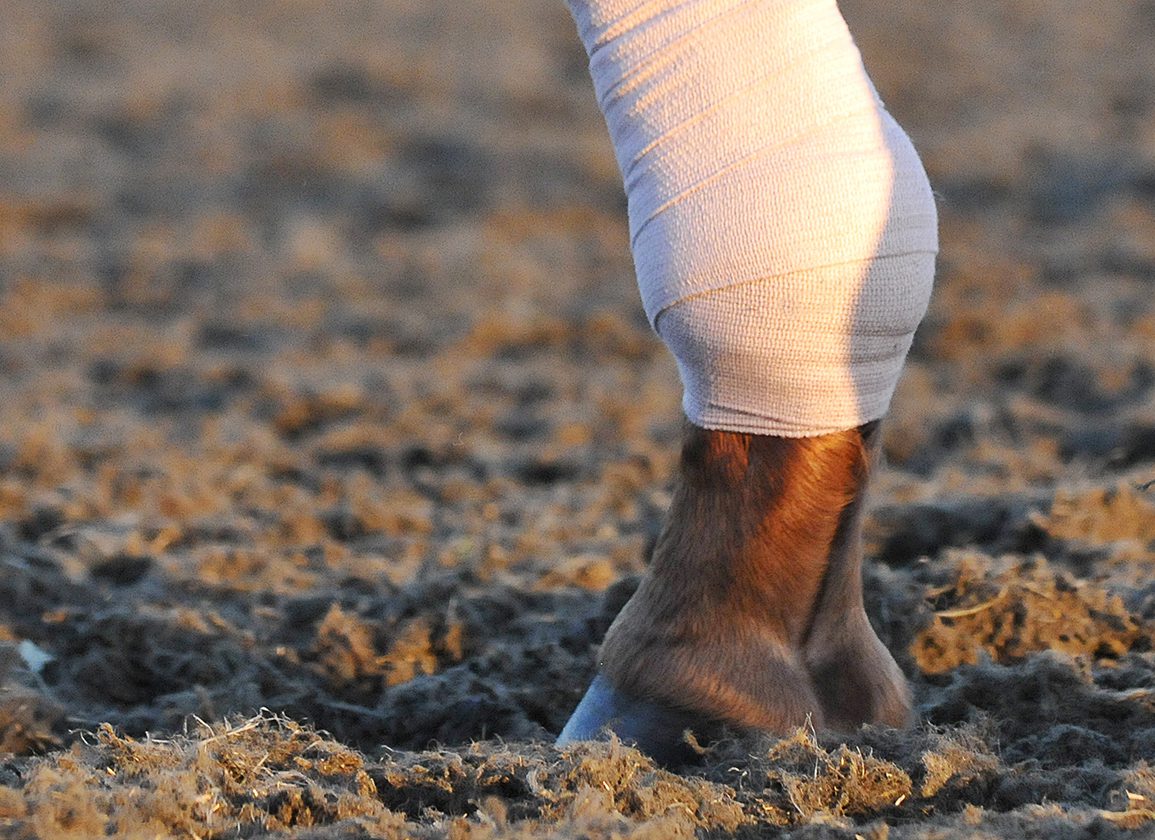by Dr. Sara Langsam
After having read Dr. Thomas Little's Open Letter to the Industry regarding HISA, I thought it was important to share a different voice and perspective. For the last 20 years, I have practiced as a private racetrack practitioner with one of the largest racetrack veterinary practices in the country. I agree with Dr. Little that private veterinary practitioners are a critical component of making sure horses are ready and sound for racing. However, I disagree with his views on HISA and its relationships with private practitioners.
HISA has been a big change for us all. However, I have always firmly believed that horseracing needs uniformity in its rules and regulations. It wasn't easy for veterinarians, or anyone for that matter, to have to adapt to different rules from state to state. Having to consult websites and calling colleagues to double check local rules in a different state was onerous and complicated. It wasn't good for either horses nor horsemen and bred confusion in general. In addition, we need to accept that standards have changed, our social license to operate as a sport is more in jeopardy than ever before. We cannot escape the fact that highly visible fatalities like the ones that took place at Churchill Downs and Saratoga this year put the industry under heavy scrutiny. Therefore, we must show the public that we are always doing the best for the horse. And as practitioners, we are the experts in the room to help the industry minimize equine injuries. We need to come together and help provide solutions. HISA can be a part of that solution.
So while we may not all have been there at the conception of HISA, something like it has been coming on for years. Previous groups have tried and failed to create uniformity and our threatened industry needed some clear direction. I will wholeheartedly agree that HISA is far from perfect, but it has always been described to me by it's stewards as a living and breathing, evolving document. The safety rules are being edited as we speak. I can tell you from first-hand information that numerous private veterinarians, myself included, have been asked to go over the current rules and proposed revisions.
And while our suggestions have not all been taken, they have all been considered. All of the current governing documents, the ADMC rules included, have had public comment periods where private attending veterinarians, along with other people in our industry, have been asked to voice their opinions. If you have a constructive revision they want to hear it. As a group, we are terrible at complaining amongst ourselves but not being productive and taking those complaints and suggestions for improvement to the powers that can change them. In addition, Lisa Lazarus created HISA's Horsemen's Advisory Group almost a year ago. Three private racetrack veterinarians are currently part of the 18-member group. The rest of the group is comprised of owners, trainers and industry executives. She and other members of the HISA board have used this group as a place to discuss issues that have come up as well as rule revisions. We represent the industry and all of us have taken questions and concerns from our fellow horsemen not in the group to the Board and they have listened.
Like I said, HISA is not perfect, but it is the best chance the industry has to guarantee that horseracing is around forever. Its success needs everyone's input, and so I encourage my colleagues to come forward and share constructive suggestions so that we can move forward together instead of dividing ourselves further. I chose to work with HISA to make it the best it can be rather than continue to fight it and then head back to our individual corners where we lived before.
Dr Sara Langsam is a shareholder in TFB Equine and is based out of Belmont Park in New York. She currently is serving as the chair of American Association of Equine Practitioners' (AAEP) Racing Committee and is a member of HISA's Horsemen's Advisory Group.
Not a subscriber? Click here to sign up for the daily PDF or alerts.






